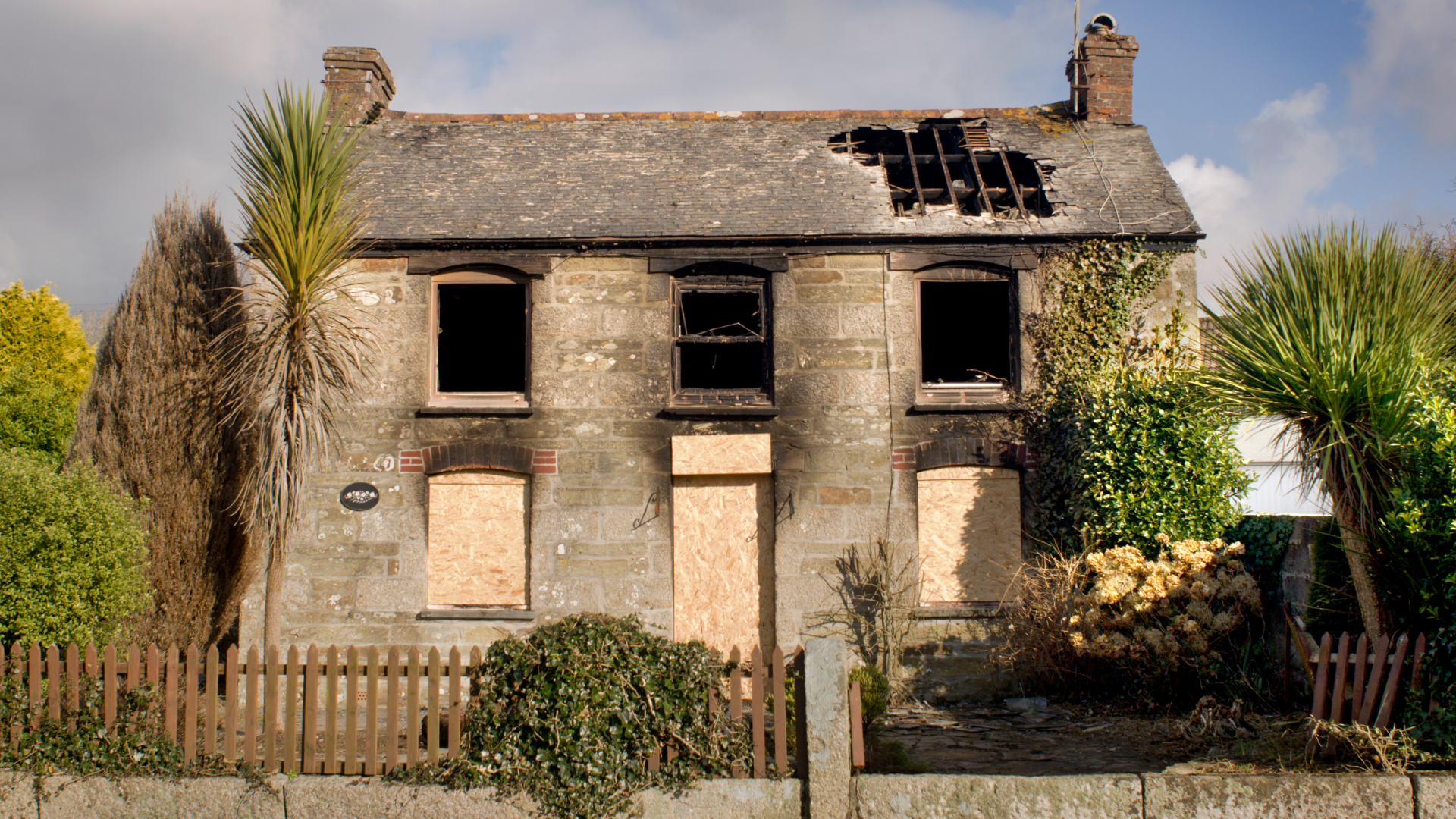Welcome to Claims Diary, an ongoing series where we interview real people who filed real insurance claims to learn about how the claims process actually went.
Every homeowner knows that owning a home comes with a huge amount of risk. Thankfully, homeowners insurance is designed to protect homeowners from the unexpected. But what actually happens if those risks become reality and you do need to file a homeowners insurance claim? Just how complicated can the claims process get?
In this installment of our Claims Diary series, we talked to one family about all the ups and downs of filing a homeowners insurance claim after an electrical fire burned down part of their home.
Electrical wiring gone wrong
Teresa Maida and her family had lived in their two-story home in a wooded area of Doylestown, Pennsylvania for around two decades before disaster struck in 2014. What seemed like a normal installation of a temporary 220 line (a common electrical line used as a source of power in residential homes) resulted in their home’s electrical panel catching fire. “The coil from the 220 line was too long, so the electrician looped it over the roof and coiled it up and set it against the house, which eventually caused a fire. The electrical panel was in the laundry room, so that’s what caught fire first,” explained Teresa.
Luckily for the Maida family, no one was hurt. But the fire spread quickly and ended up damaging half of the house. After the fire department arrived on scene, Teresa called her homeowners insurance company.
Starting the claims process
Homeowners insurance covers damage from fire, but some claims processes are smoother than others.
“Our homeowners insurance company was really good,” explained Teresa. “Right away they sent us an initial $10,000 check to get back on our feet while the claim was being processed.” When it became clear that the Maida’s home had been damaged to the point that it was going to be unsafe for them to remain there while the repairs were made, their home insurance company helped them stay somewhere else.
“Our insurer put us up in a hotel. The hotel had a little kitchenette and they booked us two rooms, which is all we needed. We stayed there for about three weeks,” she said.
Finding a temporary place to live
A standard homeowners insurance policy includes loss of use coverage, which is what paid for the Maidas to stay in the hotel for three weeks. However, their home wasn’t ready after those three weeks were up, which meant three out of the five Maida family members (two adult children had their own homes to live in) needed to find somewhere else to live until the repairs were complete.
“When leaving the hotel, our insurance gave us the choice of staying in a five bedroom house,” Teresa said. “But we didn’t actually need a five bedroom house even though we could’ve gotten that. So I looked around and I found a townhouse and sent it to the insurance company, and they said yes to us renting it. And we stayed there for around 16 months.”
Rebuilding after a house fire
Your insurance company will cover the cost of renovating or rebuilding your home after a fire, up to your dwelling coverage limit (that’s why you should make sure your coverage is enough to fully rebuild your home if it were totally destroyed).
When it came to rebuilding their house, the Maida’s insurance company sent out two contractors to estimate the cost. Once the claims adjuster approved the price, the insurance company provided a check for the cost of repairs.
Although the fire was the cause of the initial damage to the Maida’s house, there were actually other extensive repairs needed. “The roof collapsed on the side of the house near the laundry room and bathroom when the firemen went in. The left side of the house was damaged the most by the fire. But the rest of the damage to the house and our stuff was mostly from smoke and water,” Teresa explained.
What about damaged belongings?
In addition to paying to repair your home itself, homeowners insurance also covers personal property if it is damaged by a fire (or any other covered peril). In the Maida’s case, their personal belongings were also destroyed by smoke and water damage from the firefighters putting out the fire.
“The insurance company sends out a service and cleaning company, they hire and pay for them. They come in and clean items that can be recovered or throw out what can’t,” Teresa said.
The cleaning service then provided the insurance company with a bill, to reimburse the cost of cleaning the damaged items and replacing anything that wasn’t recoverable. The Maida’s received a payout for personal belongings that were damaged, like their furniture and clothing. The insurance company also helped pay to replace items that weren’t recoverable.
“Our insurance company did good by us. I will say I think the cleaning service over-billed our insurance company for things. For example, they dry cleaned our socks,” Teresa said.
Should you reshop your insurance after a claim?
Many homeowners who file claims find that their rates go up afterwards, which is why it’s a good idea to re-shop your insurance to see if you can find a better deal than your new rates. However, this wasn’t the case for the Maida family. “Our premiums didn’t go up and we’re still with our same insurance company,” Teresa explained.
If your premiums do go up after filing a claim, or if you think you’re paying too much for home insurance, you may want to consider shopping around to see if you could be getting a better deal on your coverage.
Have a claims story of your own to share? Email your story to Kara.Mcginley@policygenius.com and you could be featured in a future Claims Diary
Image credit: Getty Images

